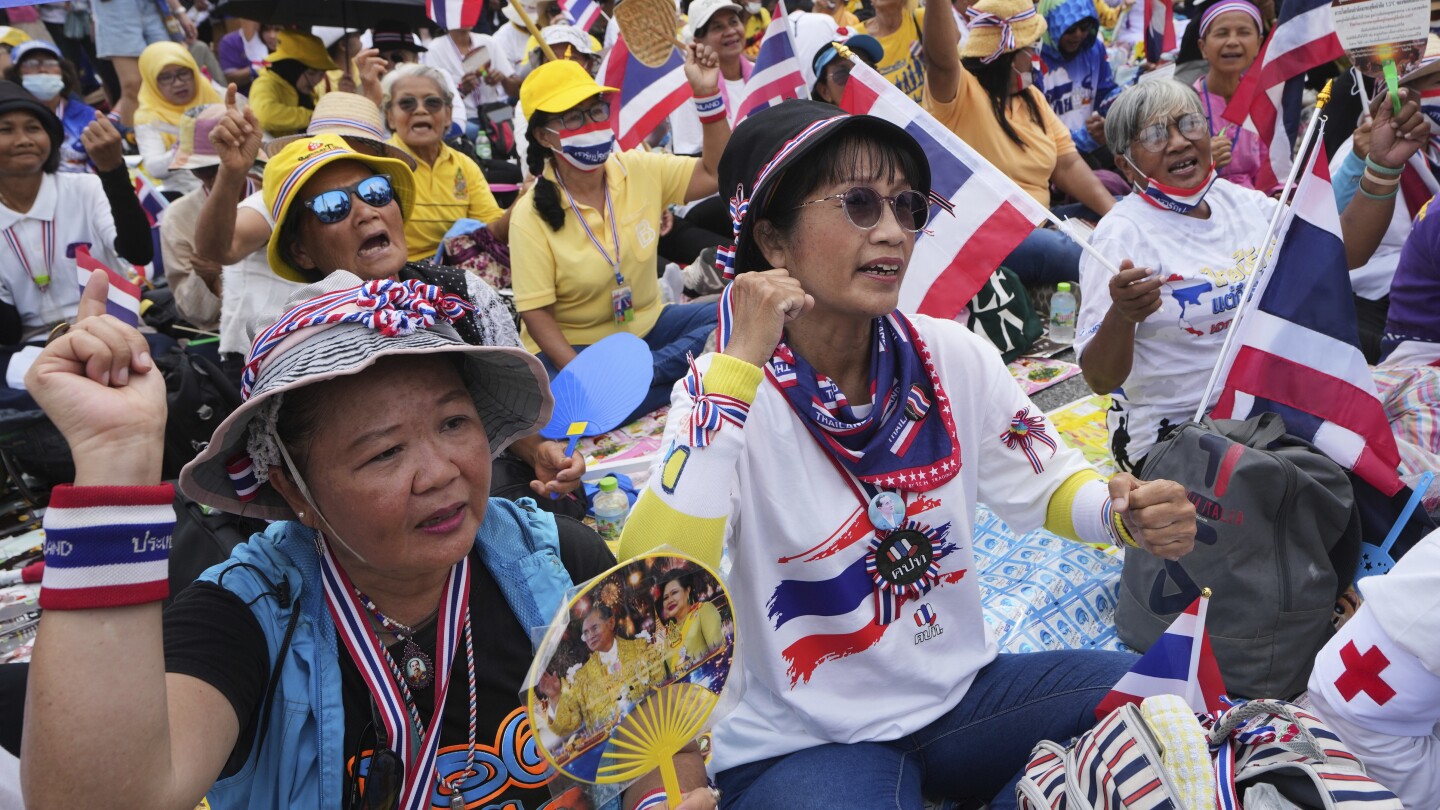Protesters in Bangkok Demand Thai PM’s Resignation Over Leaked Call

BANGKOK — Hundreds of protesters converged in Thailand’s capital on Saturday, pressing for the resignation of Prime Minister Paetongtarn Shinawatra. The demonstration was ignited by a leaked phone call with former Cambodian Prime Minister Hun Sen, adding fuel to the already simmering political turmoil.
Immediate Impact of the Leaked Call
The call, which has become the epicenter of the controversy, has prompted a series of investigations that could potentially lead to Paetongtarn’s removal. The prime minister is under scrutiny following her controversial handling of a recent border dispute with Cambodia, which escalated into an armed confrontation on May 28, resulting in the death of a Cambodian soldier.
Key Fact: The disputed area has been a flashpoint for tensions, with historical conflicts dating back decades.
Key Details Emerge from the Demonstration
Protesters, brandishing national flags and placards, occupied streets around the Victory Monument in central Bangkok. The rally was dominated by the Yellow Shirts, a group known for its loyalty to the Thai monarchy and its opposition to the Shinawatra political dynasty. The group has a history of organizing protests that have led to military coups in 2006 and 2014.
Hun Sen’s Response to the Tensions
Meanwhile, Hun Sen, speaking at the 74th anniversary of the Cambodian People’s Party in Phnom Penh, condemned the Thai military’s actions, labeling them as illegal and a direct threat to Cambodia’s sovereignty. He emphasized Cambodia’s desire for peace and cooperation while defending the nation’s territorial integrity.
“This poor Cambodia has suffered from foreign invasion, war, and genocide… but now Cambodia has risen on an equal face with other countries,” Hun Sen declared.
Political Fracture and Investigations
The scandal has fractured Paetongtarn’s coalition government, leading to the departure of the Bhumjaithai Party, a significant partner. This exit has left the coalition with a slim majority in the 500-seat house. Additionally, Paetongtarn faces investigations by both the Constitutional Court and the national anti-corruption agency, which could culminate in her ouster.
Expert Analysis on Political Implications
According to Sarote Phuengrampan, secretary-general of the Office of the National Anti-Corruption Commission, the agency is probing Paetongtarn for a serious breach of ethics linked to the phone call. The Constitutional Court may suspend her from duty pending the outcome of the investigation, with a decision expected as early as next week.
Background Context: Thailand’s courts, especially the Constitutional Court, are seen as protectors of the royalist establishment, often used to weaken political adversaries.
Protest Voices and Public Sentiment
Voices from the protest underscored the public’s dissatisfaction. Tasana Soma, a 60-year-old retiree, criticized the prime minister’s leadership, while Tatchakorn Srisuwan, a guide from Surat Thani, expressed frustration over the government’s perceived weakness in handling the border dispute.
“The prime minister must resign to take responsibility for her cluelessness,” Tasana stated, echoing a sentiment shared by many.
What Comes Next for Thailand?
As the investigations continue, the political landscape in Thailand remains tense. The outcome of these inquiries could reshape the country’s leadership and influence future diplomatic relations with Cambodia. The situation remains fluid, with potential ramifications for regional stability and governance.
The timing of these developments is particularly significant as Thailand navigates its complex political dynamics, with the potential for further unrest if Paetongtarn is removed from office.
As the nation watches closely, the next steps in this unfolding drama will be pivotal in determining Thailand’s political future.
___
Sopheng Cheang contributed to this report from Phnom Penh, Cambodia.






